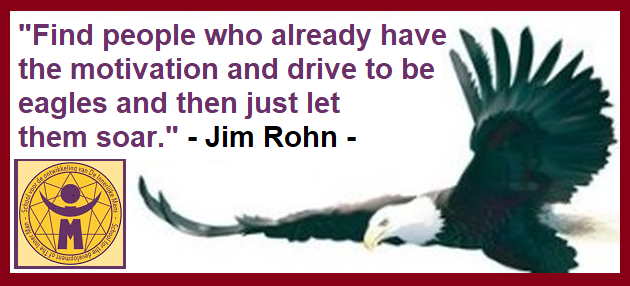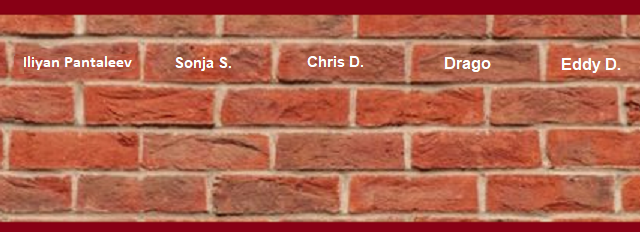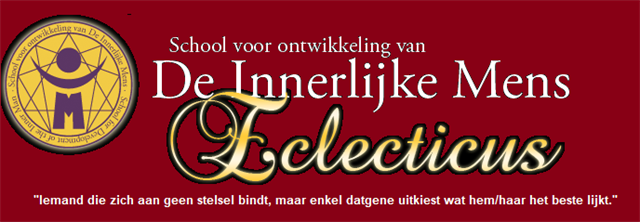Beste eclecticus,
Gisteren werd er in de Werkgroep duidelijk uitgelegd waarom zowel denken als nadenken met behulp van het formatorish apparaat een bijna onmogelijke opdracht is. Natuurlijk hadden we het niet over datgene wat mensen onder denken en nadenken verstaan - want, welke mens denkt niet na? Zelfs de lompste boer kan nadenken, formatorisch dan wel.
Over formatorisch denken werd er in 1945 in heel kort het volgende gepubliceerd...
"It has often been said that this Work is to make us think. Mr. Ouspensky used to emphasize that people do not think. They read the newspapers instead or ask their friends what they ought to think or they follow the general consensus of opinion. This lack of individual thinking leads to mass-thinking. Mass-thinking is directed by someone who tells people how to think by broadcasting, by propaganda.
On one occasion, when I was talking to Mr. Ouspensky about this, he said that in the past century people used to think for themselves far more than they do nowadays. "People," he said, "used to think more individually. Today it could be said that people have given up thinking and simply wish to be told what to think. The Work," he added, "is to make us think for ourselves." On another occasion he said that the only way for a man to be awakened nowadays is through his thinking part. "Look at the increasing sleep of humanity," he added. "It is extraordinary that people give up the one thing that is left to them – namely: the power of thinking for themselves. All these books, papers, radios, and so on, prevent people from thinking, but they are supposed to increase thought."
Now to think is quite different from to remember and it is again quite different from having fixed opinions. If people take the Work as a cut-and-dried subject that they simply store in their memory then they do not think about the ideas of the Work for themselves. When people cease to think for themselves they surrender the one part of them that can still lead to awakening. We tend to wish everything to be duly explained for us without the effort of finding our own solution - i.e.: without the effort of thinking for ourselves. If a person puts to himself these questions: "Who am I? What am I?" he or she will tend either to find out from someone some answer to these questions or regard them as morbid. The Work says a great deal about: "Who am I ?" and "What am I?" but what it says is in general terms so as to give a guide to the individual thinking. The Work, for example, says that we are all asleep in life and that we live in a world of sleeping people in which everything goes in the only way it can go. If I ask the Work: "What am I?" the answer is that I am a man asleep.
Now it is quite possible simply to accept the idea that we are all asleep and that we live in a world of sleeping humanity, without ever thinking about it individually. In that case the Work becomes similar to propaganda and people will say: "Oh, yes, we are all asleep and we live in a world of sleeping people," and perhaps they will add: "Well, that is what the Work teaches us." This is memory without thought. This is not applying the Work to oneself through thought. In fact, you can accept the ideas of the Work simply because you do not wish to think. All this means that the Work is merely in your memory, as something learned by heart and not as yet engaged with your individual thinking and so combining with yourself. It has not yet caught fire.
Through self-observation you may see that you are asleep and begin to think about your own state of sleep for yourself. This is intelligent effort. This is applying the Work to yourself intelligently. You may then begin to think: Is it true that humanity is sleeping and that everything happens in the only way it can happen as long as people are asleep? If you meditate and observe you will then begin to catch sight of the truth of one of the great ideas of the Work. You will do this for yourself. This idea of sleep will then be no longer a matter of the memory but an actual experience that you have begun to undergo and which will change you. Learning things by heart is not the Work: save in a limited sense. When you learn a thing by heart it lies merely in the formatory memory. Why it is called learning by heart I do not know, because the heart is emotional.
Just to be told that you are asleep and that humanity is asleep and to repeat it like a parrot is to miss what the Work is about and so is a sin against the Work. It means that you have never observed yourself in the light of the Work."
En ja: de rest van deze tekst vind je natuurlijk in de Eclecticus-rubriek 'Zelfkennis'...

"Vind mensen, die in zichzelf zowel de motivatie als de aangeboren drijfveer hebben om aan hun Innerlijke Zelf te werken, en we zullen hen gidsen."
- DIMschool vzw, de énige gespecialiseerd in Zelfkennis, zijnde: het kennen van het Zelf -
--------------------------------------------------------------------------------------------------------------------------------------------------
En, voel jij je geroepen om Spiritualia te sponsoren?
Klik dan op deze link. Alvast bedankt!
Overschrijven kan ook via: IBAN: BE22 7795 9845 2547 - BIC: GKCCBEBB
- Indien je zo'n (bak)steentje bijdraagt, ook eventueel via een aankoop of een Zoek&Vind abonnement, mogen we jouw naam hieronder publiceren? Laat het ons weten! -

- Ook kan je dus in onze webshop iets aankopen, waaronder:
Archetypen vragenlijst
Kristallen schedels
Pendels
Purperen plaatjes
Wierook & Benodigdheden
Voor de 'Zoekers naar hun Innerlijke Waarheid' is er...: Eclecticus!
En, dan heb je nog ...
DIMschool biedt 10 interessante privé-sessies aan waaruit jij kan kiezen!
Dossier Zelfkennis: Over de Handleiding Pendelen van A tot Z
'Eclecticus': een korte introductie…
Wat is jouw Archetype ? En, ken je ook die van jouw partner?
Een Cursus in Wonderen - A Course in Miracles: een introductie.
Interesse in Kabbala en de Boom des Levens?
Pssst! Jij, ja jij! Leren werken met Runen?… De handleiding is beschikbaar!
